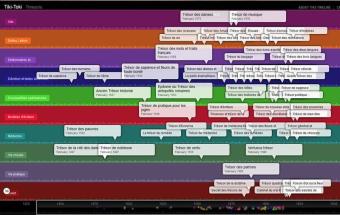
Back to top

Université de Corse
Avenue Jean Nicoli
20250Corte
France
Intervention d'Anne Réach-Ngô, Maître de conférences, Université de Haute-Alsace, membre junior de l’Institut universitaire de France
La bibliothèque numérique Thresors de la Renaissance développée sur la plate‐forme EMAN invite à interroger comment l'éditorialisation d'un corpus en un même espace numérique, celui des ouvrages intitulés Thresors imprimés entre 1470 et 1630, renouvelle le regard sur certains objets scientifiques. Dans ce cas précis, elle fait apparaître l'existence d'un genre éditorial, celui des Thresors, représentatif des pratiques de compilation de la Première Modernité. La diffusion de ce corpus permet la mise en relation d'autres ouvrages, qui éclairent les pratiques de circulation des textes de l'époque et nécessitent de repenser les modalités mêmes de leur édition critique. Ce questionnement, qu'expérimente le projet collaboratif Joyeuses Inventions, met ainsi au jour comment la pratique de l'édition critique de corpus, également engagée dans le projet pédagogique Tragiques Inventions.